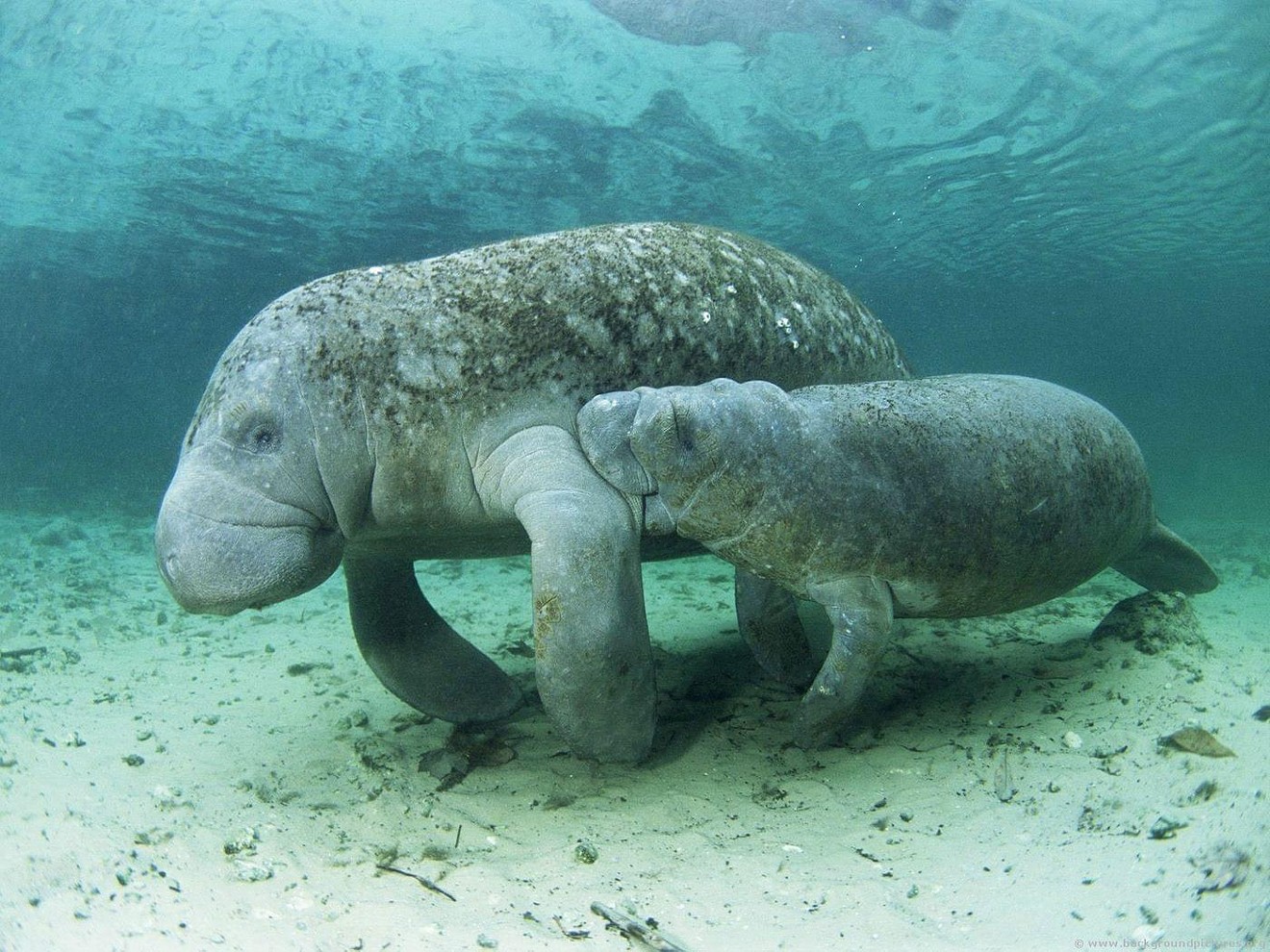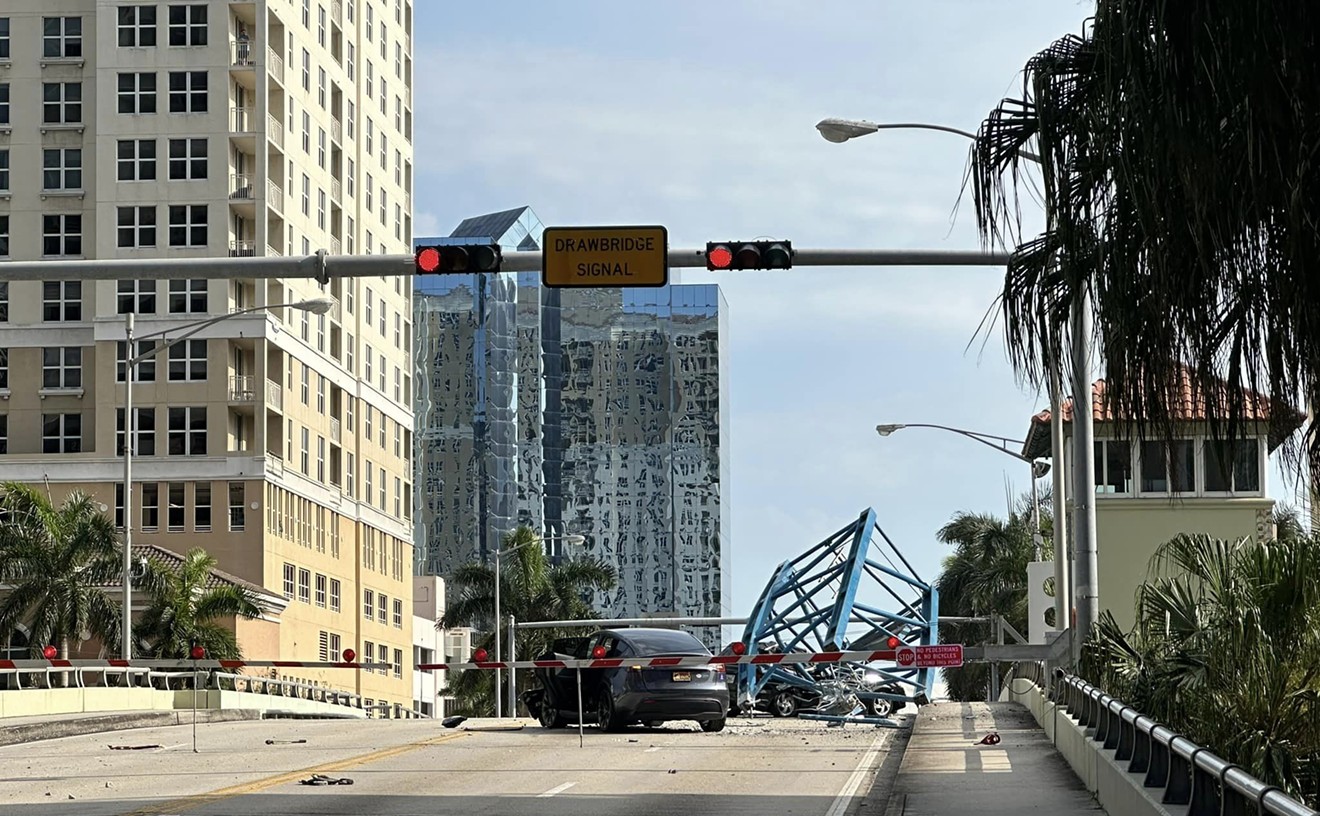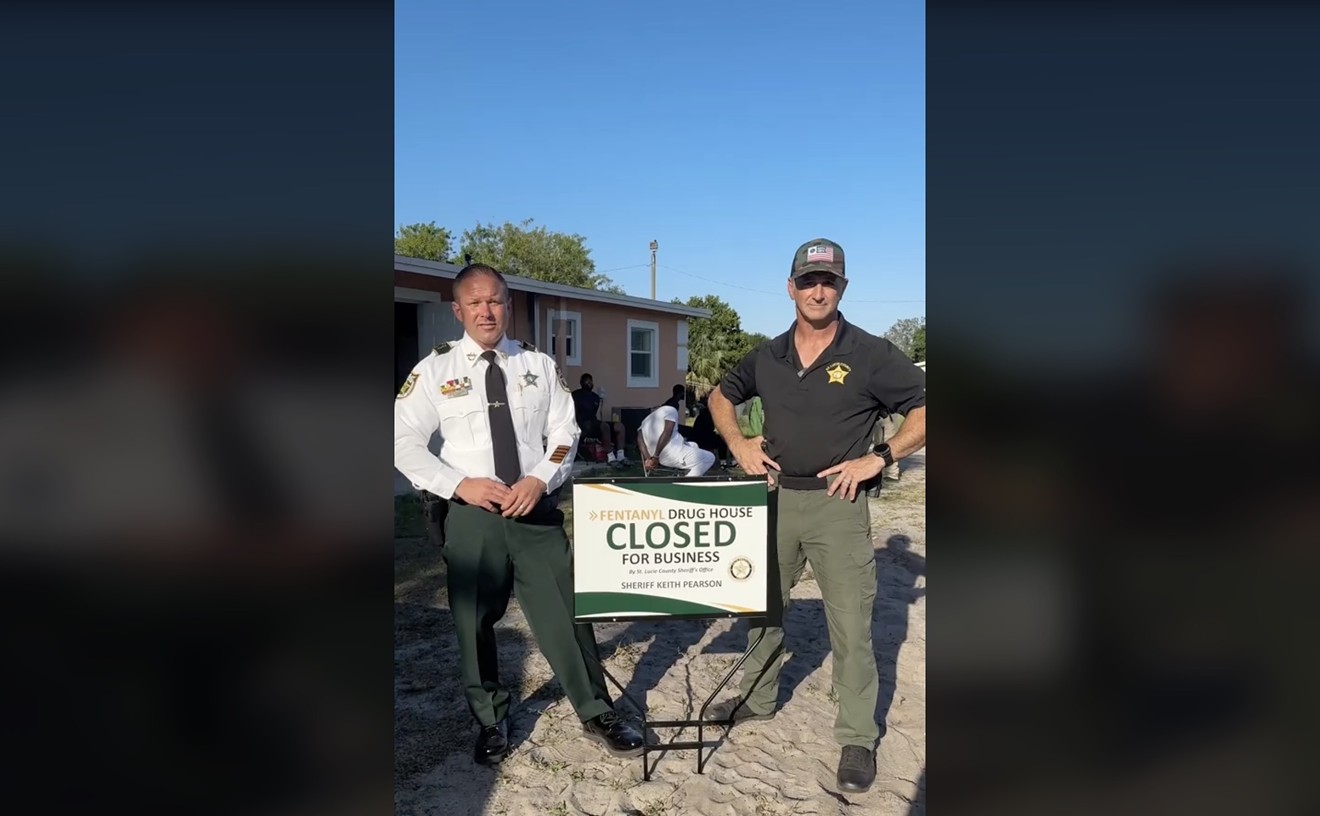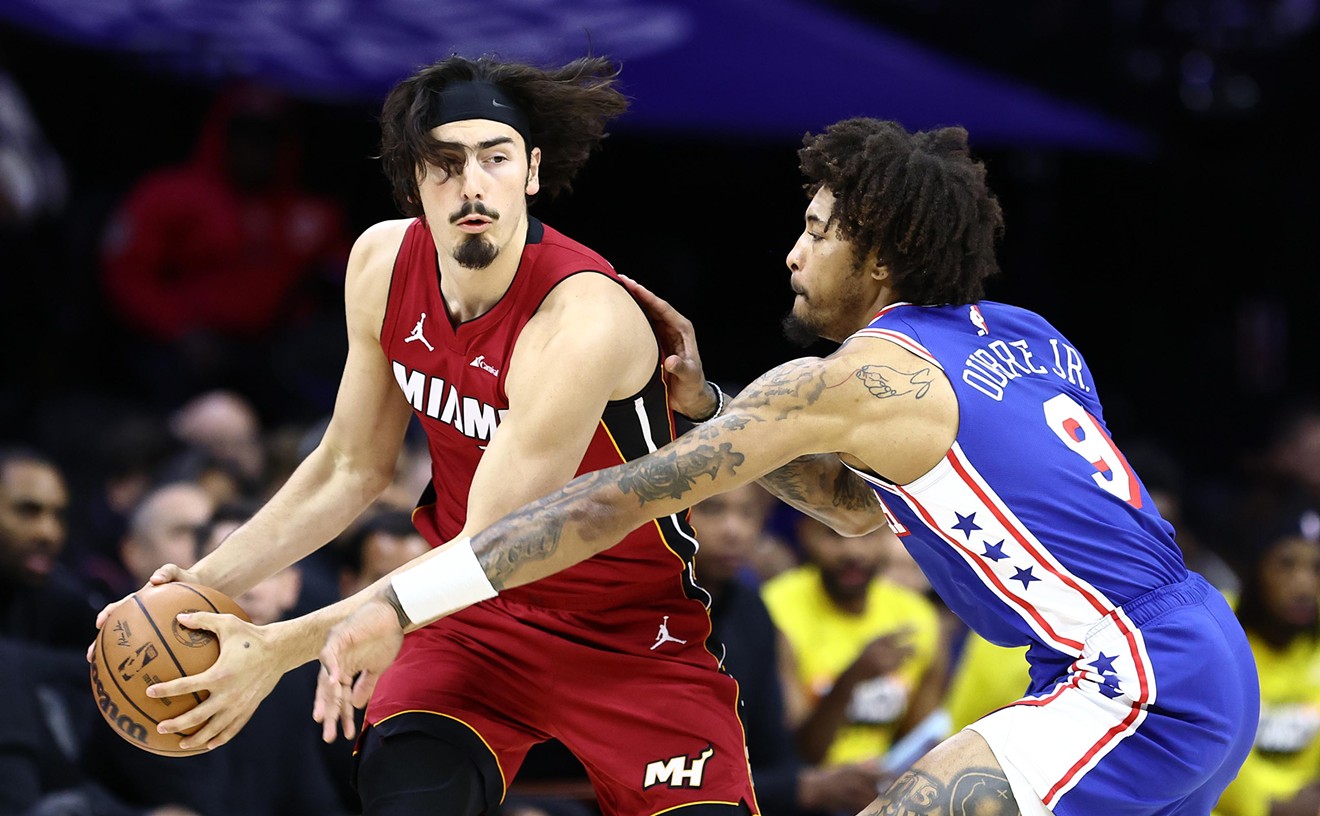Humans may have bounced back from the Great Toilet Paper, Egg, and Clorox Wipe Shortage of 2020, but other species weren't so lucky.
The year 2020 was a deadly one for Florida's docile and majestic sea cows, and humanity is partly to blame.
Preliminary figures from the Florida Fish and Wildlife Conservation Commission (FWC) show that 619 manatees died between January 1 and Christmas Day, up from the 2019 total of 592 manatee deaths.
In 2020, the FWC reported 25 manatee deaths in Miami-Dade County, 20 in Broward, 17 in Palm Beach, and 33 in Monroe. Brevard County had the highest number of deaths: 163.
FWC scientists recover and examine manatee carcasses to determine the cause of death. Last year, about a third of the manatees died around the time of birth of natural causes or because of cold stress, which happens when the creatures can't reach warmer waters in the winter months. Scientists couldn't determine the cause of death for 90 manatees, mostly because their carcasses were too decomposed.
Humans caused the deaths of 114 manatees statewide. Ninety sea cows were killed by boats and other watercraft, ten were killed by floodgates or canal locks, and 14 died of other human causes.
Those numbers don't tell the full story, though. The state didn't perform necropsies — basically autopsies for animals — on 206 manatees. As Florida Today reports, that's partly good news. As the manatee population has grown, so has the demand for necropsies, but the state is limited in its ability to examine each of the deceased animals.
"It's just not sustainable to necropsy them all," Martine de Wit, an FWC veterinarian in St. Petersburg, told Florida Today.
The coronavirus pandemic both affected scientists' ability to respond to reports of deceased manatees and contributed to the increase in the creatures' human-related deaths.
De Wit told the newspaper that when Gov. Ron DeSantis implemented a stay-at-home order last year, FWC staff could only respond to incidents involving living animals in distress throughout April and May of 2020. During those months, manatee deaths increased 20 percent compared to 2019.
Environmentalists attribute the increase in human-related deaths to a spike in boater traffic when waterways reopened and general recklessness on the water, such as speeding through manatee habitats and low-speed zones.
Sarah Gledhill of the Center for Biological Diversity, an organization focused on protecting threatened and endangered species, says the lack of necropsies can obscure the full human impact on manatee deaths in Florida.
"There's a significant data gap we're seeing because of the lack of necropsies," Gledhill says. "When you look at the final numbers, especially as it relates to boat strikes, it's most likely higher than what we're seeing. And boat strikes are preventable. That's the most striking thing — to know there is so much more we can do. We can prevent manatee mortality from boat strikes. We just have to be responsible stewards when we're on the water."
In 2019, Florida had nearly 1 million registered boats, 723 boating accidents, and 66 deaths. Monroe, Miami-Dade, and Palm Beach counties logged the highest number of reported accidents.
Florida's current boating-safety law requires anyone born on or after January 1, 1988, to pass an approved boater-safety course and possess an FWC-issued boating-safety education ID card. Boat operators born before 1988 aren't required to take the courses, but FWC statistics show that middle-aged or older boaters who have experience on the water but haven't taken boater-safety courses are more likely to be involved in an accident.
Gledhill says that shows that education and safety requirements need to apply to all boaters. She says the FWC is proposing universal boater education for operators of all ages during the 2021 legislative session.
"At this time, there isn't a lot of wildlife education built in to boater safety courses," Gledhill tells New Times. "It's more about reading signage, knowing channel markers, proper navigation, no-wake zones, and what you need to do when you see a diver-down flag. We'd like to see some added wildlife safety components in this boater safety education course."
Manatees are protected by various federal and state laws. It's illegal to feed, harass, hunt, shoot, annoy, pursue, or otherwise disturb them. Anyone convicted of violating state law faces fines of $500 and/or incarceration for up to 60 days. Violating federal manatee protection laws comes with a fine of $100,000 and/or one year in prison.
To report a sick, injured, or dead manatee to the FWC, you can dial *FWC, or call 1-888-404-FWCC and press 7 to speak with an operator.
[
{
"name": "Air - MediumRectangle - Inline Content - Mobile Display Size",
"component": "19274298",
"insertPoint": "2",
"requiredCountToDisplay": "2"
},{
"name": "Editor Picks",
"component": "17482312",
"insertPoint": "4",
"requiredCountToDisplay": "1"
},{
"name": "Inline Links",
"component": "18711090",
"insertPoint": "8th",
"startingPoint": 8,
"requiredCountToDisplay": "7",
"maxInsertions": 25
},{
"name": "Air - MediumRectangle - Combo - Inline Content",
"component": "17482310",
"insertPoint": "8th",
"startingPoint": 8,
"requiredCountToDisplay": "7",
"maxInsertions": 25
},{
"name": "Inline Links",
"component": "18711090",
"insertPoint": "8th",
"startingPoint": 12,
"requiredCountToDisplay": "11",
"maxInsertions": 25
},{
"name": "Air - Leaderboard Tower - Combo - Inline Content",
"component": "17482313",
"insertPoint": "8th",
"startingPoint": 12,
"requiredCountToDisplay": "11",
"maxInsertions": 25
}
]












